On National Aboriginal and Torres Strait Islander Children’s Day, we highlight organisations that are working to improve the lives of Indigenous Australian children and youth.

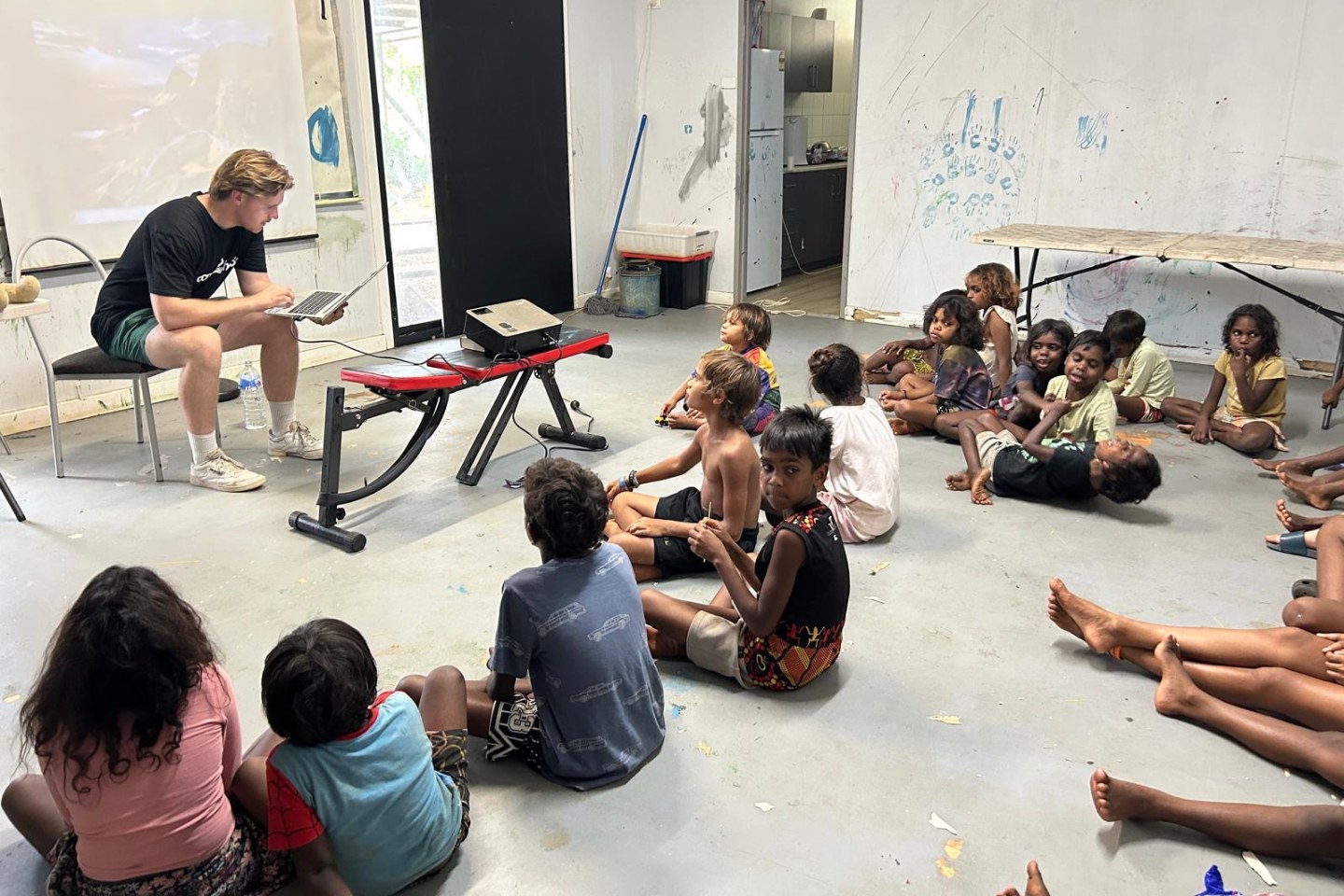
On National Aboriginal and Torres Strait Islander Children’s Day, we highlight organisations that are working to improve the lives of Indigenous Australian children and youth.
The theme for 2025 is ‘Little Footsteps, Big Future’, which was selected to honour the journey undertaken by children as they grow, and celebrate their strength, resilience and potential.
Youth mental health charity zero2hero has elevated its commitment to young people living in remote regions, targeting the Kimberley in particular.
This region was selected due to its alarming mental health statistics, where suicide and self-inflicted injuries are the leading cause of disease burden for 15 to 24-year-olds and people aged 24 and under have the highest rates of hospitalisation for self-harm in the state.
zero2hero partnerships and fundraising manager Oscar Wharton said the Kimberley youth were disadvantaged by distance without access to a high level of preventative education.
“Given the statistics of the region, we knew there needed to be a foundation to equip them with tangible skills to navigate challenge,” Mr Wharton said.
“However, on top of this, having returned to the region this year, we are starting to see how young people in these regional areas are already struggling and how deeply embedded mental health issues are within their friendship groups.”
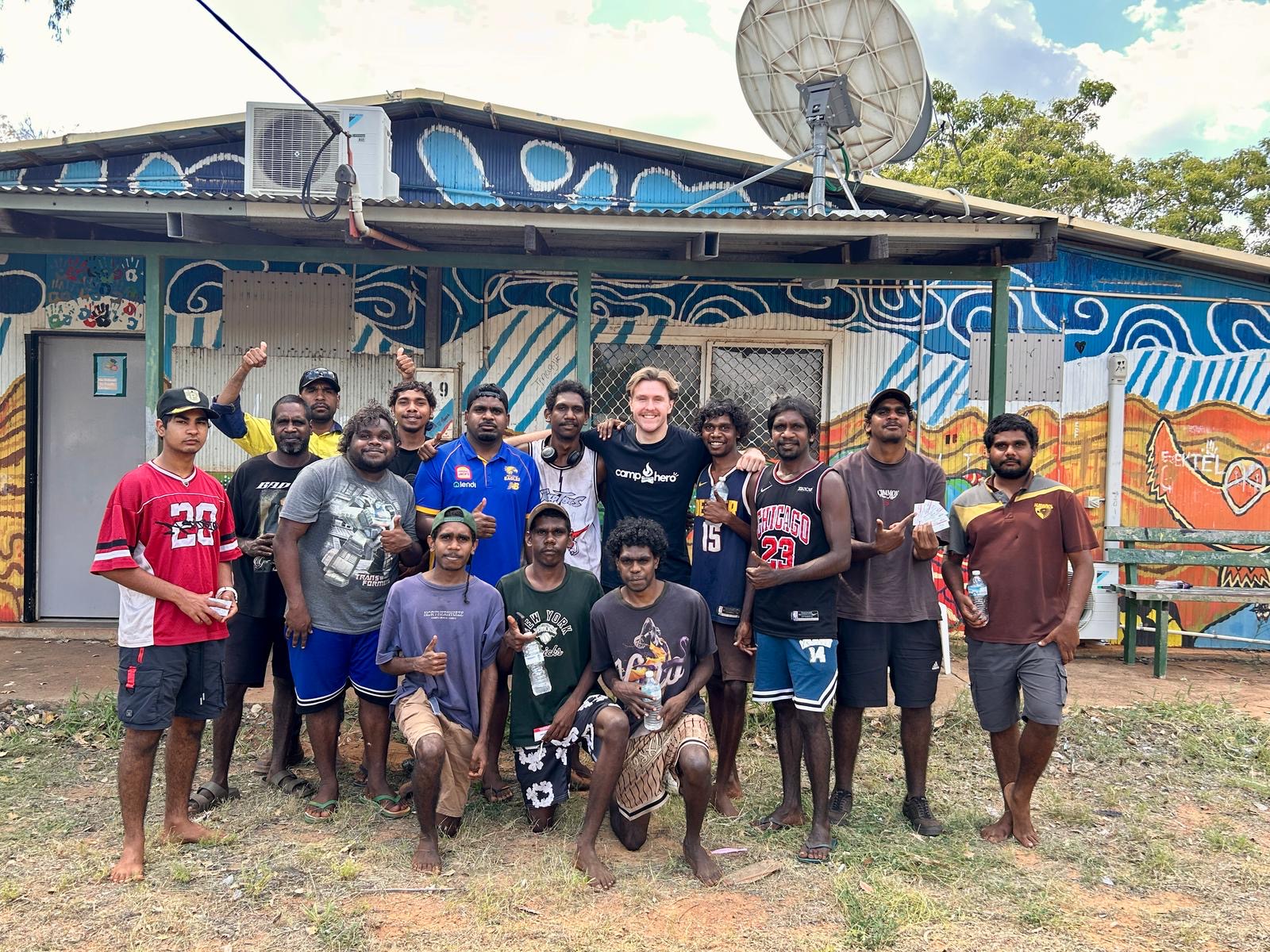
zero2hero delivered two mental health programs for both children and adults in Looma.
In 2024, zero2hero educated more than 1,500 students across 12 schools and flew 20 students across Broome and Kununurra to participate in the Camp Hero program.
The camp provided these young people with suicide alertness training via its safeTALK program, so they could return to their communities with the skills to recognise when a person may be having thoughts of suicide and safely guide them to help.
zero2hero returned to the Kimberley this year to re-engage 1,500 students again, provide mental health first aid and safeTALK programs to the region, and take 15 new students on Camp Hero.
Among the combined group of Kimberley students that engaged with zero2hero across both 2024 and 2025, 42 per cent identified as Aboriginal and/or Torres Strait Islander, which aligns with the region’s Indigenous population of 41 per cent.
Aboriginal and/or Torres Strait Islander students made up 12 per cent of the young people who participated in Camp Hero over both years.
Within the combined group of students, aged 13 to 18, who participated in Camp Hero over 2024 and 2025, 60 per cent said they have had experience with people dealing with mental illness or previously experienced mental illness, including suicide ideation.
Students who disclosed that they were currently experiencing mental health challenges of their own and/or receiving active treatment made up 26 per cent of these students.
Knowing the gap in mental health skills in the Kimberley region, zero2hero travelled to a community called Looma located three hours inland from Broome to expand its impact.
The tiny community has a population of just 500 people with 97.7 per cent identifying as Aboriginal and/or Torres Strait Islander, according to 2016 census data, and became zero2hero’s most remote delivery to date.
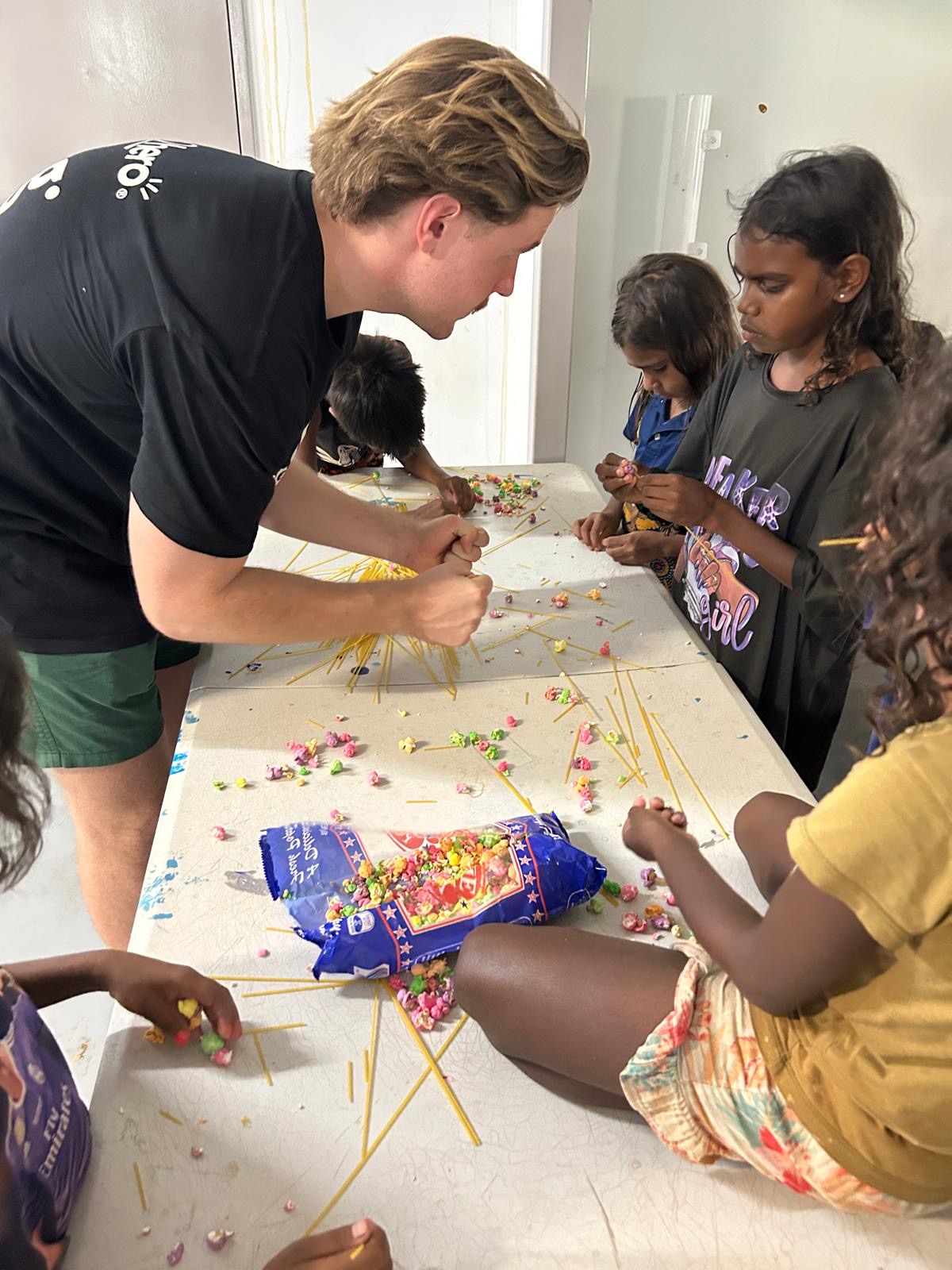
zero2hero facilitator David Barry engaging with children in Looma.
The charity delivered two mental health programs for both children and adults – Mental Health 101 and Let’s Talk Resilience – to begin engaging the community with key mental health learning.
“The energy the kids brought was unreal,” zero2hero facilitator David Barry said.
“I’m so grateful to have been able to sit with them, yarn with the community, and take a small but meaningful step forward together.”
zero2hero plans to return to Looma in the near future to deliver suicide alertness training.
Receiving healthcare off-Country
Many families living in regional WA need to travel to Perth to receive health care services and Ronald McDonald House Charities WA plays a unique role in enabling, facilitating, and supporting family-centred care.
RMHC WA delivers these services within the WA maternity, child and adolescent health systems, and works closely with Perth Children’s Hospital and King Edward Memorial Hospital to support family wellbeing, emotionally, financially and culturally.
Families that identified as Aboriginal and/or Torres Strait Islander made up 25 per cent of the families RMHC supported in 2024, and more than 50 per cent of those families travelled to Perth from the Kimberley and Pilbara regions.
RMHC is committed to creating culturally safe and inclusive environments where families can be together and maintain their cultural wellbeing.
"By ensuring that all family members are supported, we are enabling families to focus on what really matters: caring for their ill or injured child." RMHC WA executive manager operations and facilities Courtney Kennedy
The organisation’s internal research has found that 89 per cent of families they supported said their cultural wellbeing was ‘good’ or ‘very good’ for the duration of their stay at Ronald McDonald House.
Furthermore, 91 per cent of families with siblings agreed or strongly agreed that RMHC helped their other children feel less stressed or anxious, which many attributed to the family unit staying together.
RMHC WA executive manager operations and facilities Courtney Kennedy said the organisation’s programs and services were oriented towards the entire family.
“From quality accommodation and daily home cooked meals, assistance with medical appointments and transport, through to in-House play and learning sessions that not only keep children connected to their learning but also provide up to four hours of respite to parents or carers during the week,” Ms Kennedy listed.
“By ensuring that all family members are supported, we are enabling families to focus on what really matters: caring for their ill or injured child.”
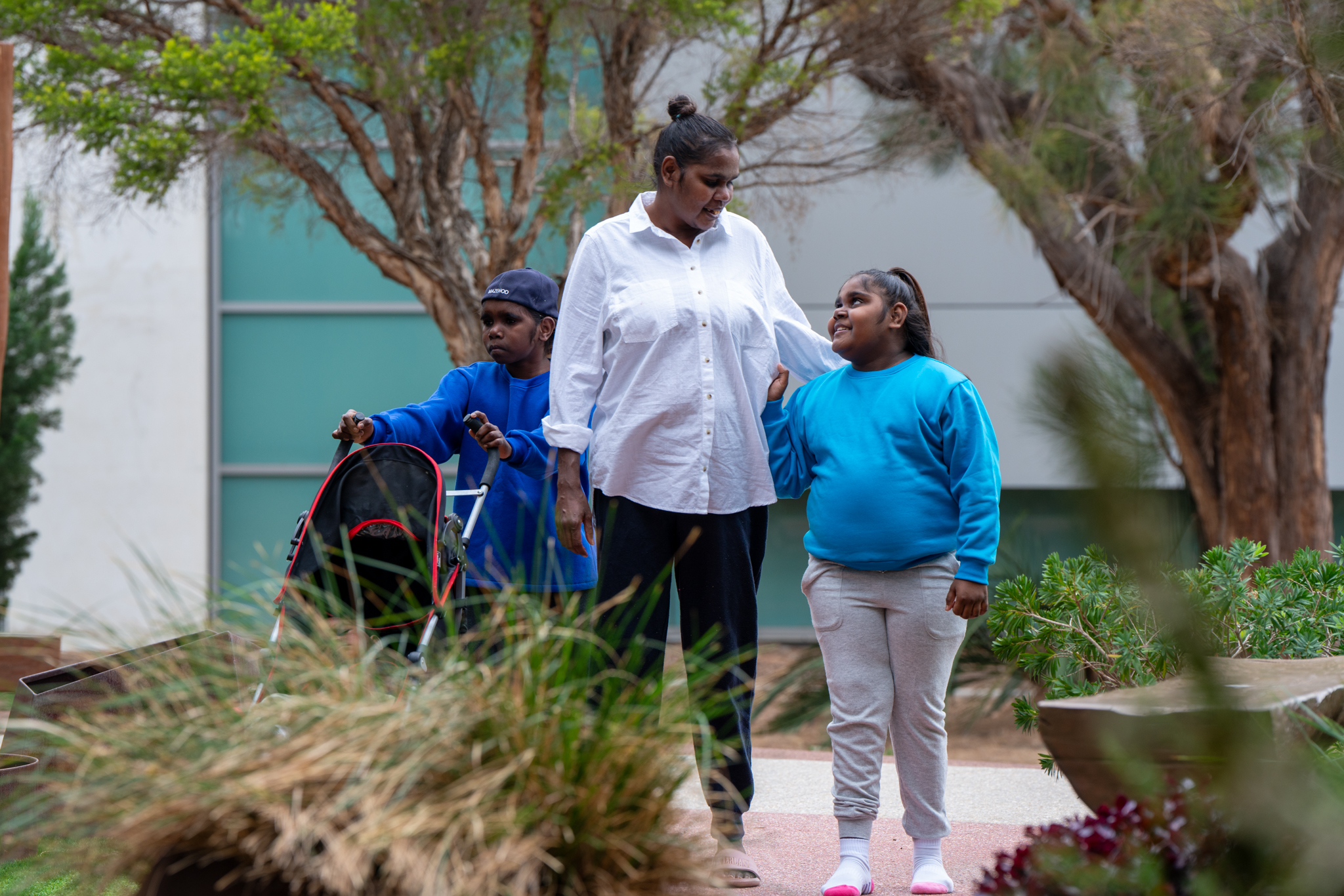
RMHC WA is dedicated to creating culturally safe and inclusive environments where families can be together.
Family centred care is a model of care for children where the patient and their family members are fully involved, in partnership with the health care team, to make informed decisions about the medical care and support services the child and family receive.
“For many families from remote communities across WA, travelling to Perth when a child is ill or injured can be particularly daunting,” Ms Kennedy said.
“At Ronald McDonald House WA we keep families together and their wellbeing supported far from home and community for as long or as often as they need.”
Aboriginal culture ripples through every service
Strong cultural wellbeing includes the development or sustainment of connection to culture and Country, which the Y WA recognises as undeniably crucial in helping children build confidence in their identity.
This understanding drives the not for profit’s commitment to creating culturally inclusive programs and services where Aboriginal and Torres Strait Islander children feel connected and that their culture is visible and celebrated.
Across all 14 of the Y’s metropolitan and regional early learning centres (ELCs), cultural inclusion is embedded in everyday practice, with songs, stories, and routines enriched with cultural learning being taught to help build understanding and respect of Aboriginal culture from a young age.
"Use of ... storybooks also provides opportunities for children to develop an early appreciation for diverse voices and perspectives." The Y WA literacy specialist Renee Chakaodza
Each day begins with children acknowledging the Country where they live, recognising the ongoing connection to Aboriginal and Torres Strait Islander culture.
The Y WA School ReadY Program also helps children to connect with the culture through a range of storybooks by Aboriginal and Torres Strait Islander authors and illustrators, including Sally Morgan, Johnny Warrkatja Malibirr and Gregg Dreise.
“The inclusion of these books was a conscious choice to give young children the opportunity to connect with the world’s oldest living culture through rich, age-appropriate storybooks, whilst developing vocabulary and foundational narrative and comprehension skills,” the Y WA literacy specialist Renee Chakaodza said.
“Use of these storybooks also provides opportunities for children to develop an early appreciation for diverse voices and perspectives.”
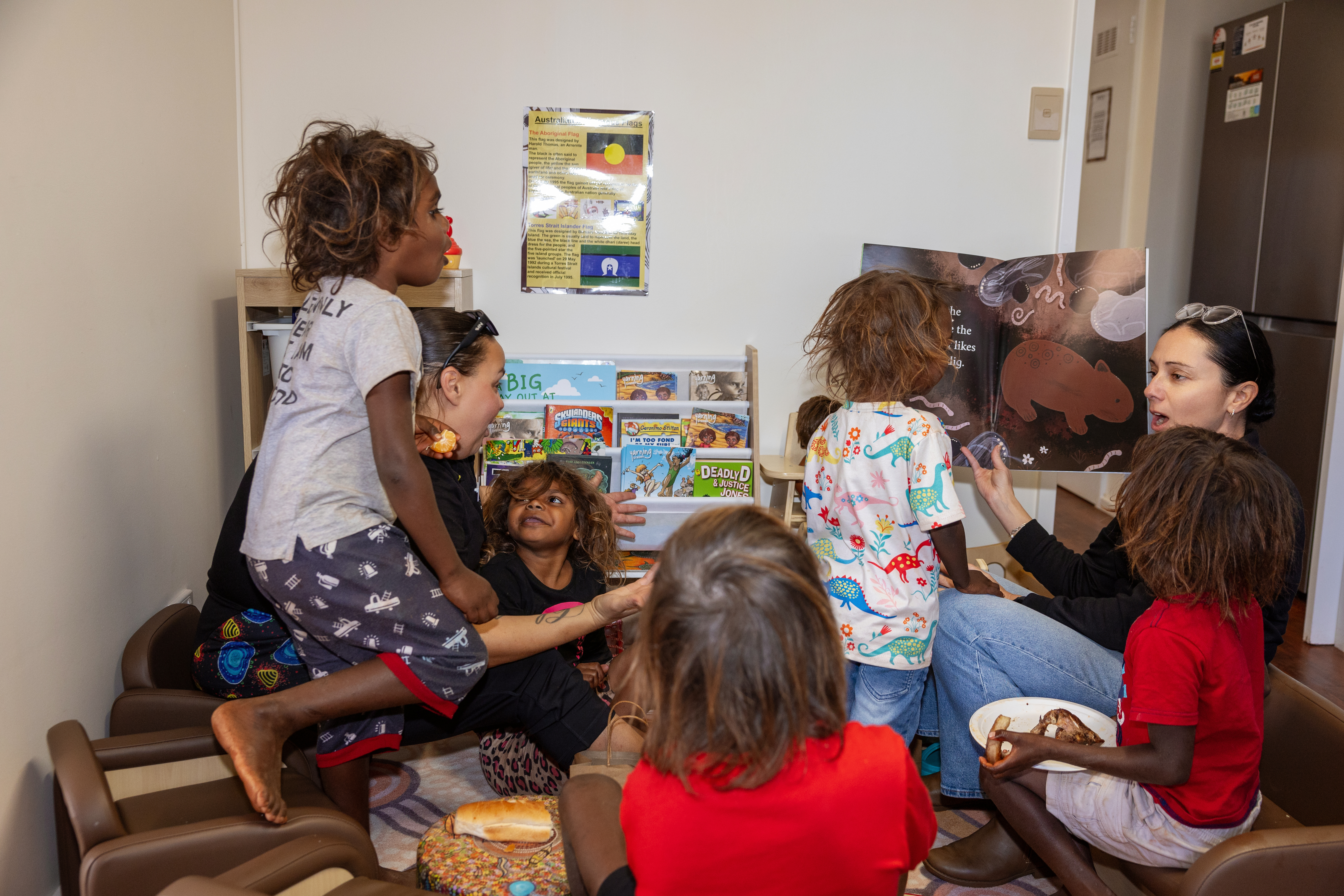
The Y WA School ReadY Program also helps children to connect with the culture through a range of storybooks. Photo: Serene Bedlam Photography
Individual ELCs also connect with the local Aboriginal Elders, organisations and Aboriginal Corporations to support the inclusion and acknowledgement of Aboriginal and Torres Strait Islander culture.
For example, at the Y Broome ELC, Aboriginal and Torres Strait Islander children and their friends are supported to learn the language of the local Yawuru people.
This includes the children singing their daily Acknowledgement of Country in Yawuru and learning songs and words in their first language.
“We have embedded the Yawuru language into our everyday practice and sing and use Yawuru language every day,” Broome ELC director Tracy Mathers said.
“We have had a lot of positive feedback from parents regarding these lessons.”
Beyond the early years, the Y’s commitment to Aboriginal culture continues in their Outside School Hours Care (OSHC) services.
At Mosman Park OSHC, supervisor Steevie Harper sits on the school’s Reconciliation Action Plan Committee to ensure the OSHC service is included in broader conversations about culture, inclusion, and respect.
Ms Harper also works closely with local Elder Aunty Freida and Aboriginal families in the community to guide the service’s cultural learning journey.
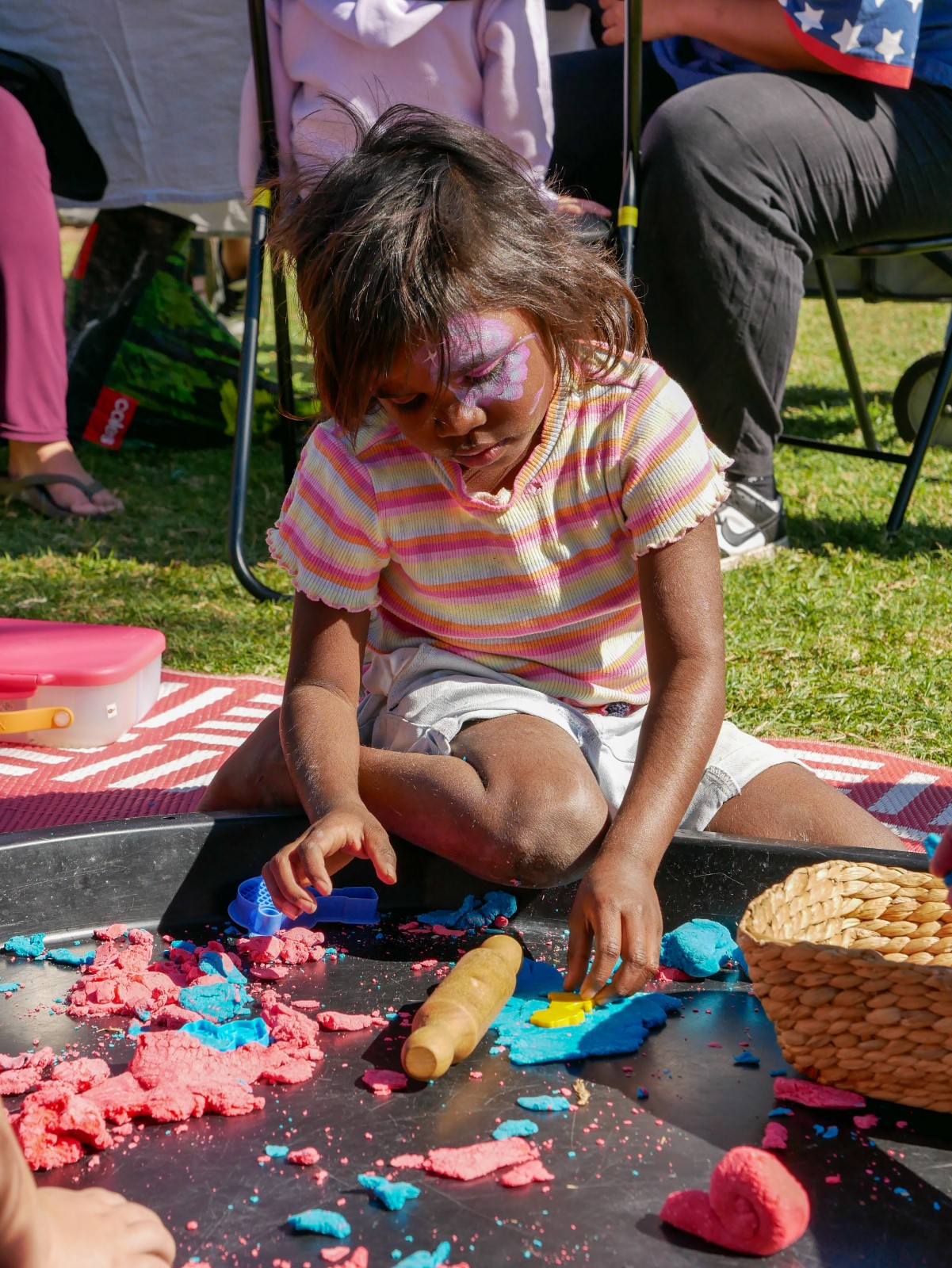
The Y WA aims to help children feel respected and supported to grow strong in their identity.
The Y’s Mosman Park OSHC service recently delivered a four-week cultural learning program, inviting children to explore a range of learnings across the themes of language, dreamtime stories, science, and Country.
- Language – learning local Aboriginal words and incorporating them into daily routines.
- Dreamtime Stories – exploring stories like the Rainbow Serpent (Wagyl) and co-creating a large-scale artwork to become a permanent feature in the OSHC space.
- Deadly Science – engaging with science activities grounded in local nature and knowledge.
- Country – reflecting on what it means to live, work and play on Aboriginal land.
This supports Aboriginal and Torres Strait Islander children to feel strong and proud of their culture, while other children learn to appreciate it.
Beyond its programs and services, the Y WA encourages all staff to take an active role in supporting Aboriginal and Torres Strait Islander children to see and connect to their culture.
Every day, the Y WA works to create culturally welcoming, safe and inclusive environments where children feel respected and supported to grow strong in their identity.
All Australians are invited to show their support for Aboriginal and Torres Strait Islander children and learn more about the culture, community and connection to Country on National Aboriginal and Torres Strait Islander Children’s Day.














